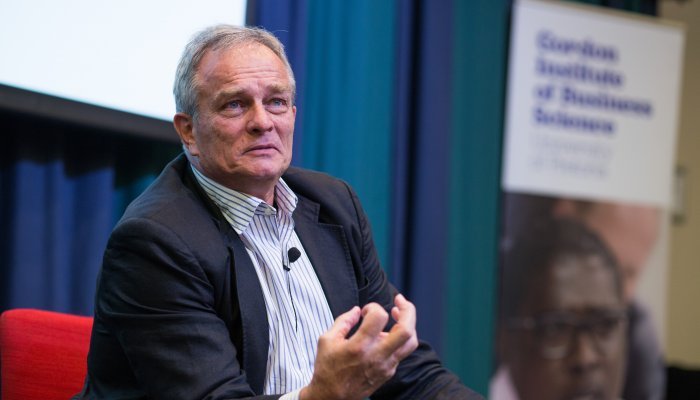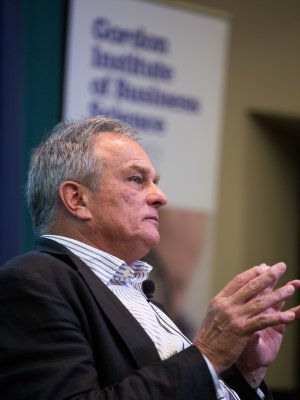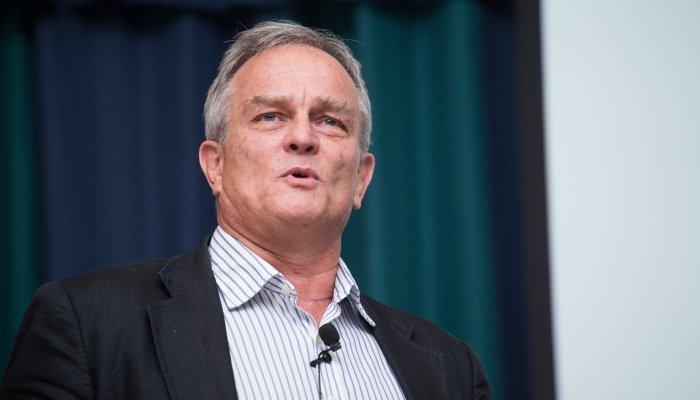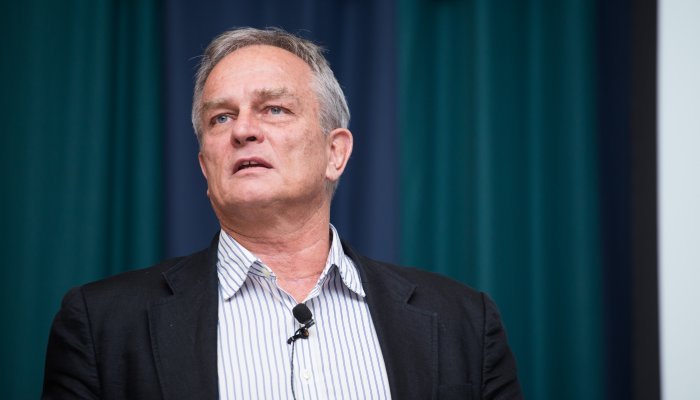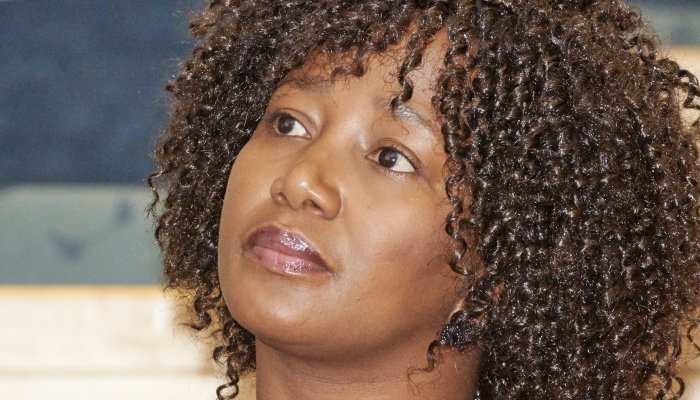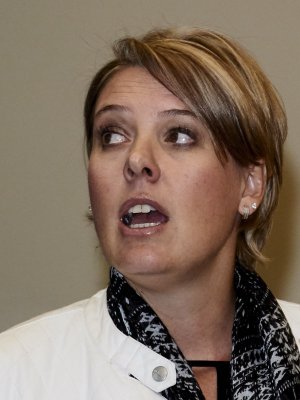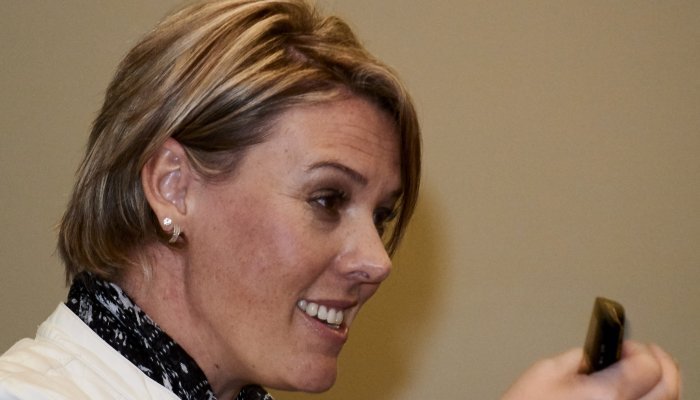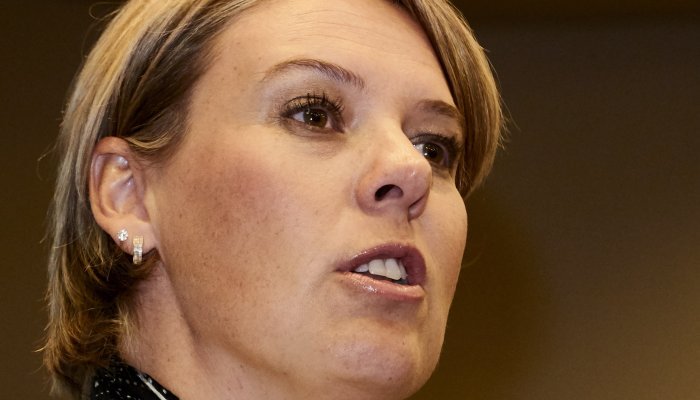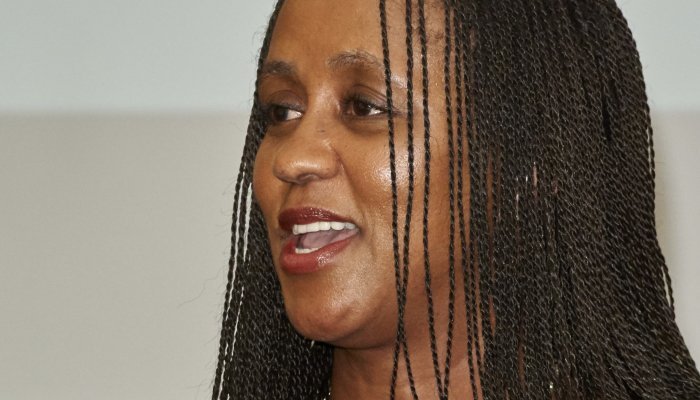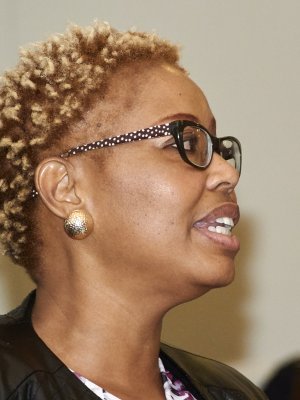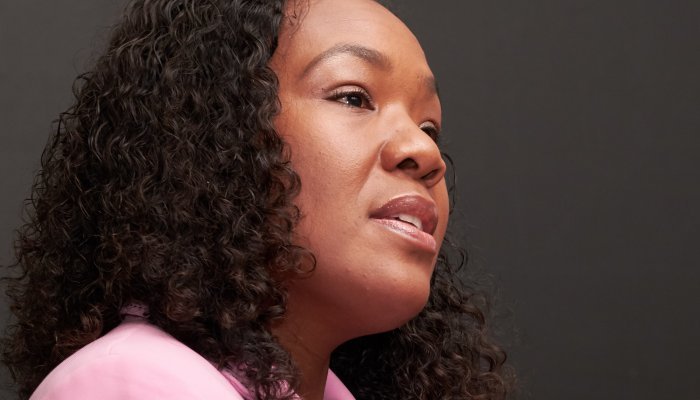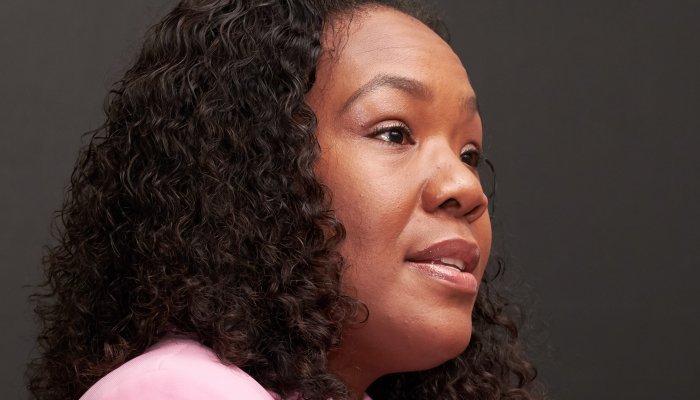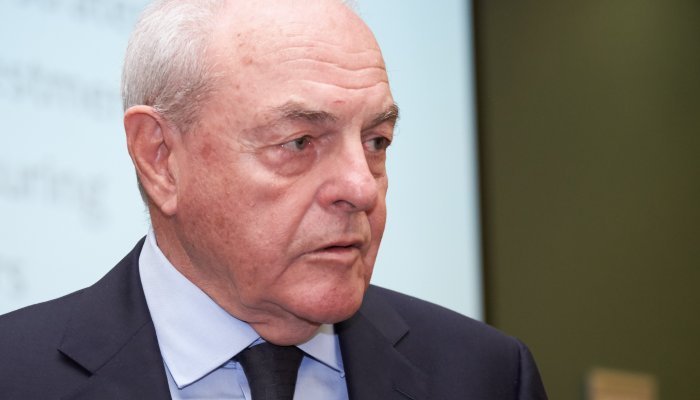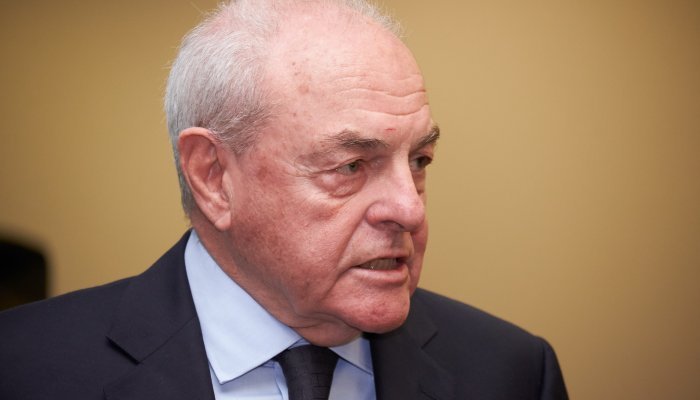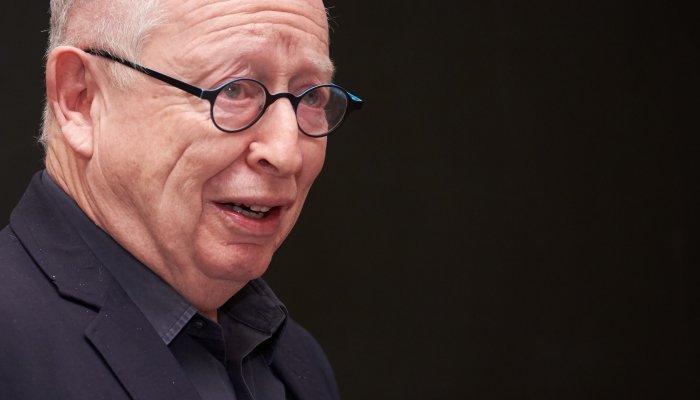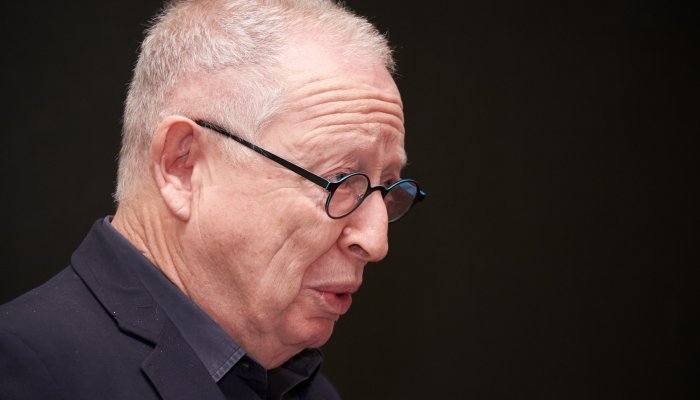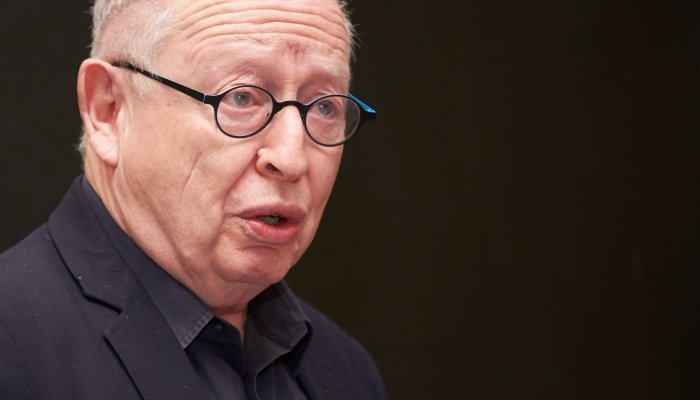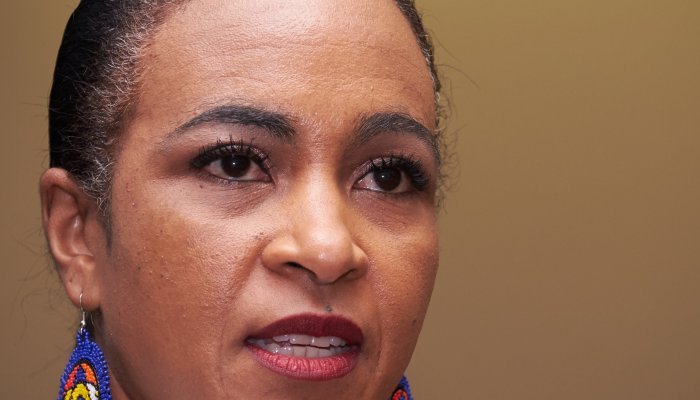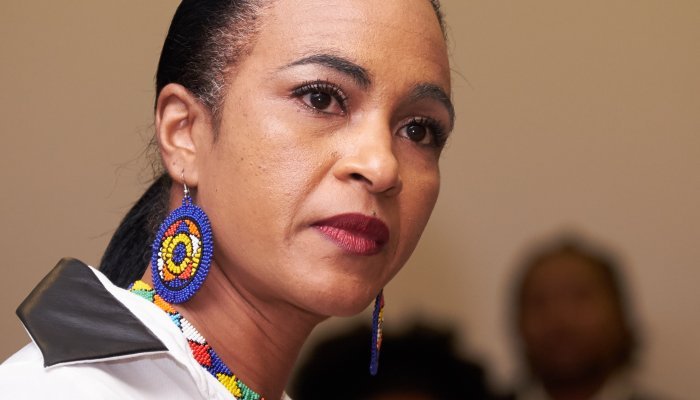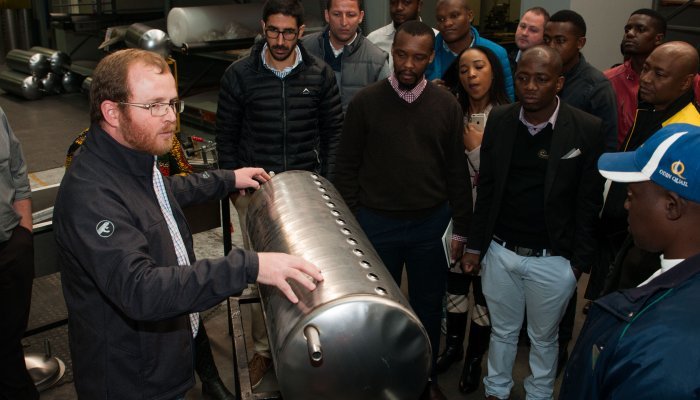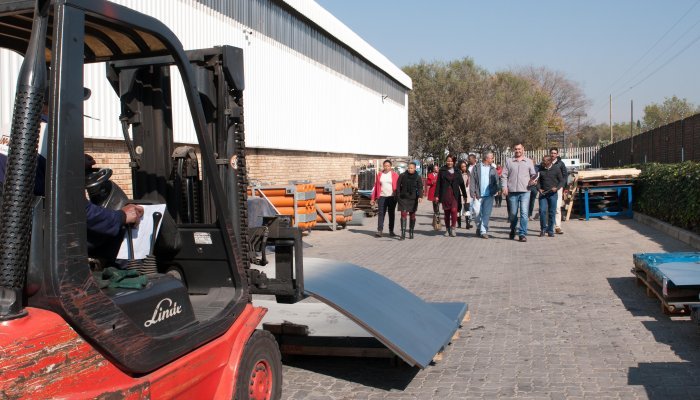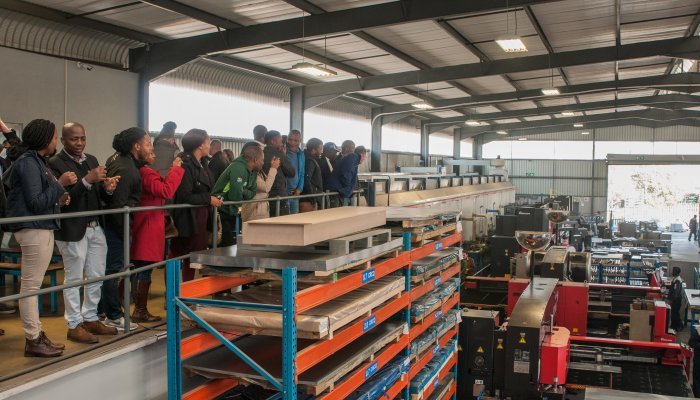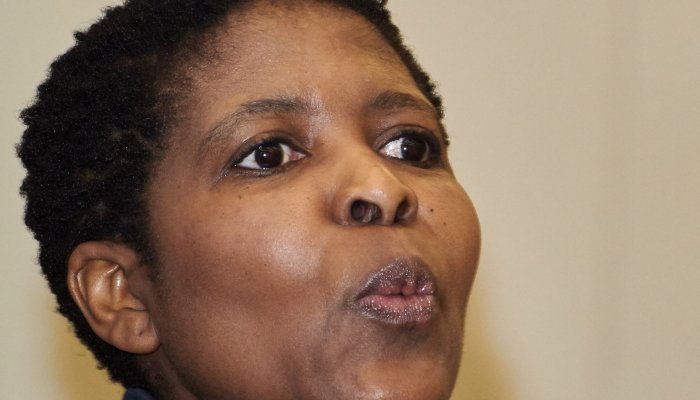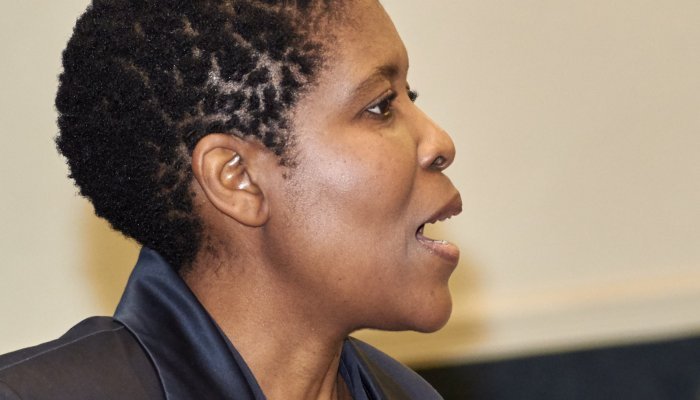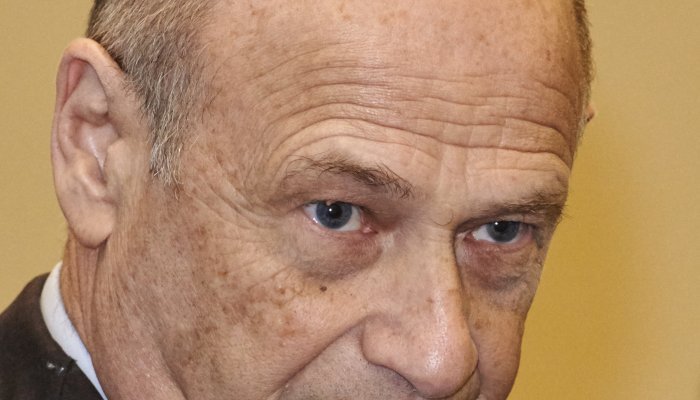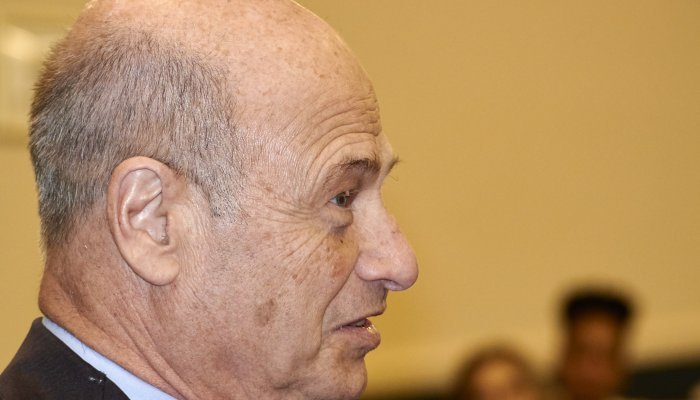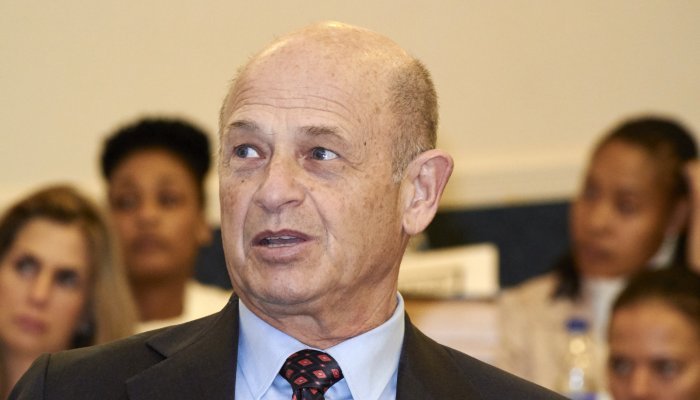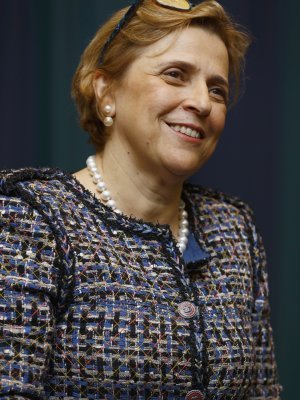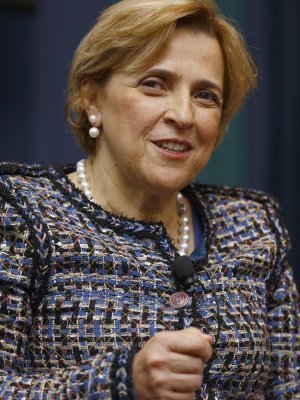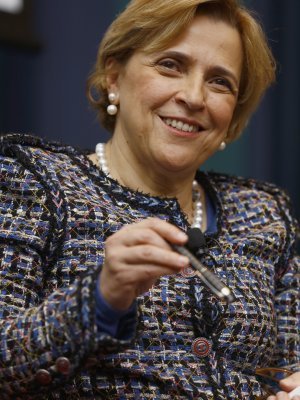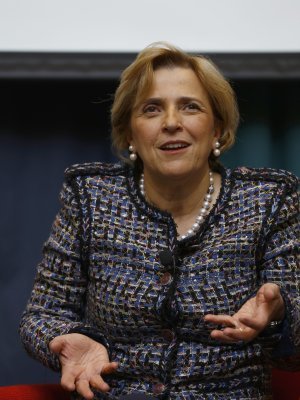Maria Ramos - Asking the Tough Questions
Confirming a R2.7 billion investment in its Shared Growth Programme, Barclay’s Africa CEO Maria Ramos told a recent CEO Engage event at GIBS that the funds would be split between youth education and skills training, along with financing for small and medium enterprises. This, she said, was in response “to arguably the greatest need and social stability threat facing the [African] continent.”
She urged delegates to do more.
“There are some fundamentally important CSI projects and we do a lot of those, too, and we’ve done a lot of those, but it’s challenging ourselves to do much more than that. To say, hold on, is this all we can do? Or do we need to do more? Do we need to change the culture of the organisation? What does it really mean to say you’re ‘customer-centric’? Are you really?
“When we talk about financial inclusion, what does that really mean? How do we really make that a focus for us? … Have you really stopped to think how you are actually going to deliver a financial product in a way that is accessible, that is easy to understand, with costs to deliver that are achievable and reasonable?
“We’re putting a lot of money behind education and skills - R1.4 billion in three years is a lot of money - I have an argument all the time with our team, I say ‘Why are we spending this money? It’s a lot of money!’…But it’s about how you spend it. If we spend it well, what’s the impact? Who should be helping us with this? Who do we partner with? And then, how do we measure ourselves? It is changing the culture in the organisation. And the next time we put up a product, is it a product that we’ve developed first or a product that we’ve identified the customer needs? Is the product really addressing that?
“It’s not an easy journey to go on and I don’t think we’ve got all of the answers. We really have started down this road and I hope that we’re energising our own colleagues, internally, differently, because people feel like they’re part of something bigger, more meaningful, rather than something that’s got a label on it.”
Visiting Success
Peer visits inspire J.P. Morgan Small Business Boost Entrepreneurs
The Enterprise Development Academy (EDA) is a GIBS unit committed to building business and leadership skills in entrepreneurs and helping them develop sustainable, efficient and profitable enterprises that are able to employ more people. In partnership with J.P. Morgan, the EDA is currently providing entrepreneurs in the green economy with a 10-month entrepreneurship and business management scholarship called the Small Business Boost Programme – the first of two cohorts of 100 entrepreneurs to be trained.
The programme has a practical academic component, followed by mentorship and coaching. Earlier this year, participants went on a field trip to give them achievable and aspirational motivation.
Field trips are a dynamic method of providing entrepreneurs with a real-world simulation of business potential. During this time they can marry classroom-learnt theory with the real-life experiences of successful entrepreneurs. On this trip, they visited Pressdynamic, Solar Ray and Neat Cabinets, all owned by entrepreneur Aylwin Stephenson. Then came a tour of Heatlight Trading, located on the same premises within the Kyalami Business Park and owned by an entrepreneur on the programme, Rikus Prins. Heatlight Trading is also a provider of solar components to Solar Ray. Finally, participants were hosted by entrepreneur, Job Moraka of Nameplate Center Signs.
Participants agreed that their aspirations for local economic growth are achievable. Each of the entrepreneurs encountered confirmed an awareness that the provision of quality goods through world-class staff skills development would lead to the creation of further jobs.
Be So Good They Can’t Ignore You
It was a full house of more than 100 delegates on each day for the GIBS Conference on Strategic Corporate Communications, Reputation Management & Stakeholder Relations at the end of May/ beginning of June.
“Human sigma is the moment the brand touches the consumers. The brand is how the touch feels, how the experience feels,” stated visiting US expert, Alan Hilburg, CEO of Hilburg Associates. He warned delegates against falling into the trap of becoming content experts: “If you want to reach the ceiling, you need to be trusted adviser. If you are a subject matter expert, you will always be a subject matter expert. How do you talk to CEOs? Not by being a subject matter expert. You talk to CEOs by helping them hear what they can’t hear.”
Hilburg’s message was echoed by FleishmanHillard CEO Sharon Piehl, who reported that the roles of Chief Communications Officer and Chief Marketing Officer were blurring. “Reputation capital is one of the best assets to have,” she added.
Scaw Metals Group Executive Head: Public Affairs and Communications, Dudu Ndlovu explained how she and her team worked through the very tough problem of implementing a reduction in headcount, via Section 189 of the Labour Relations Act. “It was like a massive Sudoku puzzle with multiple dimensions…We had to redefine the organisation from scratch.”
“Get out of your comfort zone, walk around, get in touch…keep your ears on the ground,” advised PRASA Senior Manager: Marketing and Communications, Lilian Mofokeng. “That’s where reputation comes from, it starts with what the kids are saying.”
Mofokeng also had a stern warning for would-be practitioners. “This function is involving, seriously involving, so if you do not have the heart for it, please do not ask to be moved to public affairs.”
Mark Barnes - Turning the Post Office
Former investment banker and chairman of investing and trading solutions company Purple Group, Mark Barnes, is the new man at the helm of the SA Post Office. HIs job, according to Telecommunications & Postal Services Minister Siyabnga Cwele is to grow the Post Office’s business. Barnes outlined to a recent GIBS Forum how he planned to achieve that.
“Our really important clients are corporates and parcels and the rural areas where people have no choice. But you [in Johannesburg] have got choice, you who are prepared to pay any price to get what you want delivered on time and intact. So what that’s done is created a whole parcels and logistics business outside the Post Office, which has also had the effect of increasing substantially the margins in that business.
“So what you’re paying to courier today, we can deliver that same thing at, like, 10% of the cost over our infrastructure, because we are the low-cost producer by far. The difference is that we can’t deliver it - well, we can, actually, as long as we pay the trucks that bring it to us. We all use the same roads, there’s not much difference in the delivery mechanism - we just weren’t doing it. So imagine if we did start doing it?
“And then … start imagining what you could use this physical infrastructure for. How much time is wasted every day for travelling to Johannesburg to collect anti-retrovirals? Or any other chronic medicine, for that matter? Why can’t we deliver that … at a post office? Why aren’t we paying social grants through the Post Office? Why is a foreign-controlled company getting the business from government to pay the grants? My argument to the government is that if you take any piece of economics out of the fiscus and put it into the private sector, that’s a loss to the country. So don’t. If we can do it, we should do it.
“Ultimately, one day, you’re going to go to the Post Office, LSMs 1-10 are going to go to the Post Office. LSM 1 - you're going to get your social grants, LSM 10 - you’re going to go and buy some easy equity stocks. In the middle, you're going to go and collect…I saw the Gauging Government wanting to do a deal with Dis-Chem to distribute medicine. I’m like, “Why? Why don’t you do a deal with us? Pharmaceutical margins are huge. We could cut those margins extraordinarily and do a deal with you guys.” Home Affairs - Home Affairs have got 407 outlets. We’ve got 4,000. Which queue are you going to go to if we can deliver your ID or your passport…?”
“When consequences don’t apply, there is impunity.”
With the focus still very much on ethical and honest behaviour in the workplace, delegates to GIBS’ annual conference on Fraud and Corruption, Governance, Ethics, Compliance and Investigations, heard this very clear warning from Deputy Auditor General of South Africa, Tsakani Ratsela.
She explained that there was also “a lack of financial skills in those required to act”, but the “ultimate goal” of her office was “strengthening the system so that it is not susceptible to fraud and corruption.”
Corruption Watch’s Executive Director David Lewis reminded the audience that most corruption happens “at the intersection between the public and private sectors”.
Institute of Internal Auditors CEO Dr. Claudelle von Eck emphasised the need for consequences, which she said “must be there and they must be visible,” although she noted that “sometimes they have a high cost…like firing a sole breadwinner.”
Keynote speaker, Prof. Mervyn King, chairman of the King Committee on Corporate Governance, pleaded for sustainability issues to be embedded into corporate strategy.


